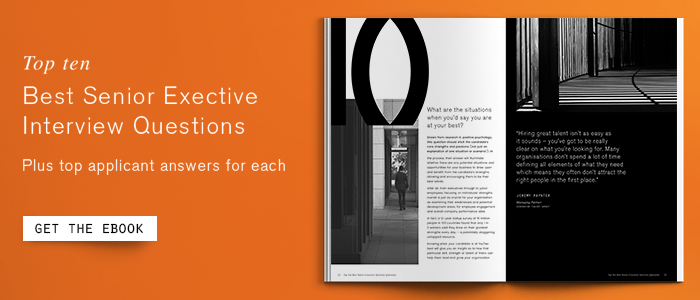25th January 2017
Five ways to create a better candidate experience
As a HR manager, it feels like you probably see more CVs and applicants than daylight. There’s no doubt about it; recruitment is a long and tiring process. However, we forget about the experience our candidates have on the other side of the table. We’ve all been candidates ourselves — so we should know better than most how poor communication or clumsy recruitment processes can lead to a bad experience. After all, talent acquisition is a two-way street.
At Generator Talent Group, we listen closely to our candidates to discover what they like and dislike in their own recruitment journeys. With that information, we’ve come up with five best practices for creating a positive candidate experience.
1. Information up front
The more details you provide potential candidates about your company, culture, and the role, the more likely they’ll submit their best, most targeted application possible. By conveying exactly what you’re looking for, they’ll tailor their resume to feature their most relevant skills, experiences and achievements — saving you a great deal of wasted time filtering through applications that don’t meet your criteria.
I don’t accept vague or unclear applications, and nor should you. So it seems fitting that the job description, advertisement, and guidelines you provide should be just as clear. A recent study found that the more specific the salary information provided in job ads, the more likely candidates were to apply. So use straightforward language and present all the info they need in order to make a decision about whether or not to apply.
2. Interviewing skills
A successful interview is contingent on a number of factors — but a bad interviewer can make or break a candidate’s chances through no fault of their own. Most applicants will be nervous no matter how well they hide it — so don’t be surprised if they stumble over a few words or they seem a little tense. Your interviewer should have the skills and experience needed to put them at ease and tear down the walls your applicant has put up — allowing the chance to really suss them out.
If your staff isn’t equipped to do that yet, then consider interview training — especially if you aim to attract the best candidates for the job. Give your interviewers a tested template, checklist or process to follow, and be consistent in sticking to it. Keep in mind that this should be treated as a general guideline for conducting interviews; it’s still important to listen, remain flexible in the conversation and tailor the questions to the individual candidate. Most of all, ensure your interviewers give candidates the opportunity to sell themselves.
3. Responsiveness
If you’re serious about learning how to improve candidate experiences, be responsive to your feedback and don’t forget to ask for theirs. Providing feedback is important to your candidates as part of their ongoing career development — not just in their last interview, but in future situations too. The worst thing you can do is to provide no response at all following a candidate’s interview, so as awkward as it may be to notify someone about an unsuccessful application, it’s better than no news at all.
Every candidate is a prospective customer, so making them feel rejected or ignored without explanation can damage the reputation of your company, and impact potential business relationships in the long term. Regardless of the outcome of their application, ask candidates about their experience throughout the recruitment process. This will help them feel valued, and show you how to improve.
4. Closing the communication loop
Using online application systems and automated recruitment tools are both a blessing and a curse to us HR managers. One study found that 23% of job seekers who’ve had a bad experience filling out an online application would never apply for a job at that company again (and for anyone who tried to complete this year’s ABS census, you’ll know what I’m talking about…).
On the other hand, if you want to make your recruitment efforts efficient, some degree of automation will be essential — particularly if you want to stay in touch with candidates as they move through the process.
With automation becoming more popular amongst us HR professionals, there’s really no excuse for us to leave candidates hanging. I recently heard from a CEO candidate who had made it to an advanced stage in his application process, even meeting the director and chairman of the company — then nothing. After three weeks of silence and another job offer, the candidate was forced to track down the original job search firm who posted the vacancy to find out the outcome of his interview. Not that it mattered; the lack of communication and overall negative experience had already turned him off both the company and the search firm.
5. Candidate due diligence
It’s a candidate’s responsibility to research the company they’re applying for. But, you can speed this along by giving candidates all the information they need about the role and company culture early on in the recruitment pipeline. When they move forward through the process, provide them with opportunities to interact with other employees, potential teammates and bosses. Make sure they’re given adequate time to consider an offer of employment; this is not the time to make them feel pressured.
Even when a vacancy needs to be filled urgently, bear in mind that up to 20% of staff turnover happens in the first 45 days of employment — so it’s worth taking a little extra time to make sure your employment offer has been accepted with certainty and confidence. Improving the candidate experience is all about putting yourself in the candidate’s shoes.
One of the most effective ways you can do that is by asking the right questions during the interview process. So to help, we put together a list of the top 10 questions to ask when hiring executives. Click the image below to get your free copy.
Categories: Uncategorised




